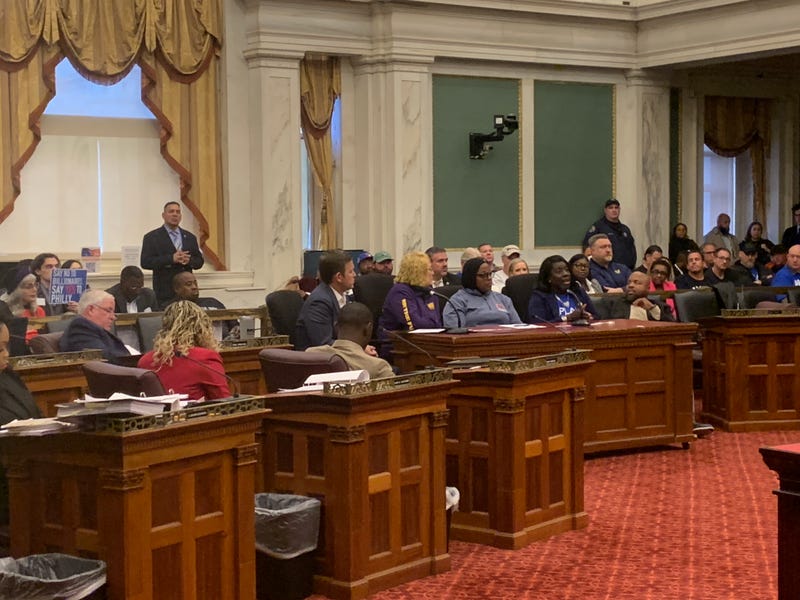
PHILADELPHIA (KYW Newsradio) — Philadelphia City Council on Tuesday heard from opponents and supporters of a Center City 76ers arena in Day Three of hearings on the project. Chinatown leaders, who are unanimously opposed to it, got a chance to sound off. But the most startling testimony came from a rare stakeholder who takes no position on the project: SEPTA.
SEPTA could prove to be the biggest obstacle for the arena. Testimony on Tuesday underscored the burden an arena above Jefferson Station would place on SEPTA and the lack of funding to support it.
Unlike everyone else who’s testified in the prior two hearings — the Parker administration and the 76ers organization — SEPTA takes no position on whether the arena should be built.
However, interim chief Scott Sauer made it clear that the current plan that makes the arena possible — getting 40% of fans to take SEPTA — is not financially feasible.
“The reality is that SEPTA simply cannot assume these new costs within the framework of its operating budget.”
SEPTA’s chief of staff, Liz Smith, testified that the arena would cost the agency about $32 million during the six-year construction period and then at least $21 million annually for the additional service — which is considered the linchpin of the arena’s feasibility.
“Our purpose today has been to provide the facts and the numbers as we see them based on the best information available and to make it clear the costs of these impacts cannot be borne by SEPTA.”
Apart from that, deputy general counsel Gretchen Wisehart says SEPTA needs Federal Transportation Administration permission to make any changes to Jefferson Station, which the current design requires.
“FTA must determine that all eligibility criteria are required, including economic benefits and transit benefits,” Wisehart says.
Sauer said SEPTA is open to working with the city and the 76ers on solving these problems if the project moves ahead.
Familiar arguments from Chinatown
The arguments from Chinatown leaders are, by now, familiar to anyone who has been paying attention.
“Chinatown’s future has never been more vulnerable in my lifetime,” said Chinatown Development Corp’s John Chin. “This arena will push Chinatown toward the precipice.”
Chin urged Council members not to approve the arena legislation, citing construction disruptions, traffic, and gentrification that threaten the neighborhood’s small businesses.
Council members pushed back gently. Councilman Curtis Jones asked what other project might take its place.
“When people visit our city, I don’t want a wonderful, super Five Below for you to visit,” Jones said.
Council members also wanted to know whether anything could be added to the Community Benefits Agreement to protect the neighborhood and its businesses, but opponents declined to answer because they simply don’t want the arena, in any form.
One restaurateur said he would likely go out of business.
“I don’t know how money would compensate that, because my business would be gone. There isn’t money to make up for that kind of loss.”
